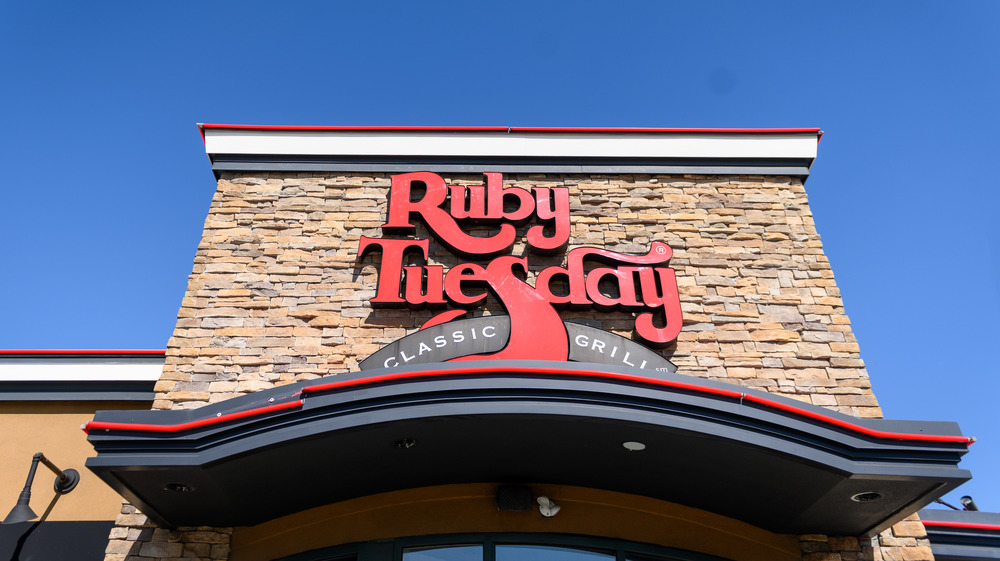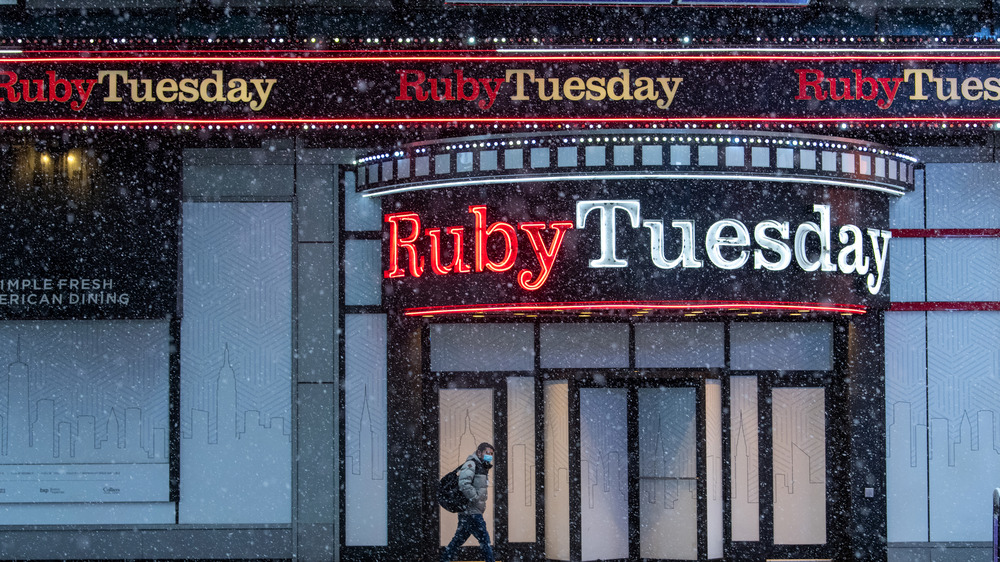How Bankruptcy Is Changing Ruby Tuesday
When we can finally go out to dinner without worrying about COVID-19, we might not recognize what we see. According to ABC, 16,000 restaurants had permanently closed by the middle of 2020, with a loss of almost 110,000 by the end of 2020 (via Bloomberg). The businesses that have clawed their way through this trying time have had to radically restructure to fit the new way of safely conducting business. Some restaurant chain casualties, like Ruby Tuesday, have emerged from the ashes, but might appear unrecognizable from its previous form.
According to Food Service, Ruby Tuesday has surfaced again after voluntarily announcing chapter 11 bankruptcy with a new business model that guarantees to draw in better profits. The status change saw the fast casual chain lose some of its assets and downsize, while focusing more on promoting its brand in off-premise business opportunities. While the word's still out on what off-premise business opportunities Ruby Tuesday plans to expand upon, we can hope that it might see a greater emphasis on take-out, delivery, and even drive-through service (via Touch Bistro).
Ruby Tuesday rises from the ashes
Even before the pandemic hit, Ruby Tuesday had faced some serious financial problems. The restaurants, which once relied on their placement in American malls to draw in profits, had slowly lost momentum due to large malls slowly dying out across the country (via USA Today). The bar-and-grill restaurant format has also faced accusations of bad businesses practices. According to Nation's Restaurant News, this style of restaurant saw a very noticeable drop in popularity by the mid 2010's, and with trendier options rolling in, the eventual restructuring of Ruby Tuesday felt inevitable.
Only time can tell what happens next for this massive chain that has helped define casual sit-down dining across America, but hopefully, the new business plan keeps the chain afloat and profitable through the year. So, if you can't live without Ruby Tuesday, make sure to give them some of your business — they need it to stay afloat.

